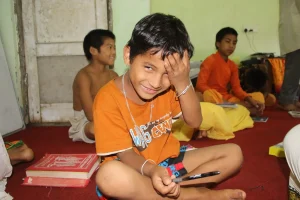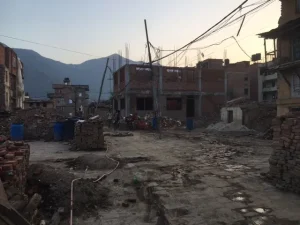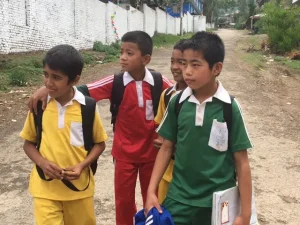Thoughts On Good Intentions
As our Empower Nepal project finishes its first full week of operation, I often search for moments to reflect on our organization’s mission, people, and work thus far. Our early mornings and tight schedules leave little in the way of free time, which is good — it is important for our team to make the most of the time we have. In the moments which allow me to catch my breath, though, I closely examine the work we do. I challenge the assumption that we are unquestionably doing a good thing. I ask whether we are making a difference, and — most importantly — whether that difference is a positive one.
This scrutiny may seem pessimistic. However, pessimism does not drive my skepticism. Rather, I hold this line of thought because I see the danger in helping others. More specifically, I see the danger in providing aid to those in developing countries, without constant self-awareness and evaluation.
Months before our arrival in Nepal, a mentor of mine (who himself leads an international non-profit organization) sent me a speech given in 1968 by the provocative Ivan Illich. The speech, titled “To Hell with Good Intentions,” was delivered to a conference of students volunteering in impoverished Latin American countries. In the speech, Illich paints such student volunteers as ignorant, self-righteous hypocrites. He accuses them of “pretentiously imposing [themselves] on Mexicans.” Ultimately, he pleads with the students to recognize their powerlessness, their inability to truly understand those whom they plan to help, and their incapacity to do good in a developing country.
On what grounds does Illich make these statements? He claims that American volunteers will, more than anything, create disorder in the impoverished foreign communities in which they work. All the while, they will become walking advertisements for the American middle class, because that is all they know. They are not part of the culture, and most do not speak the language. How can they possibly understand the struggles, needs, or thoughts of those they plan to help? If one must help the poor, Illich says, “at least work among the poor who can tell you to go to hell.”
On one hand, I agree that may never truly understand the thoughts and feelings of an impoverished Nepali student (or any Nepali for that matter). We come from completely different backgrounds and cultures, and speak different languages. I also agree that our team’s presence may cause disorder — students jumping and yelling around us during initial visits did not strike me as the picture of a productive school day.
On the other hand, following Illich’s rhetoric to its logical conclusion has its own dangers. Such thinking encourages a culture of global isolationism, when international detachment makes less sense than ever (keep in mind that Illich’s speech was given in 1968). This detachment then prevents those who are most in need from receiving the help of those ready to give.
With these sentiments in mind, what makes me think that Reinstalling Hope’s work is valuable and — equally importantly — respectful to those whom we help? The answer lies in the foundations of our organization and mission. Despite being founded in the U.S., Reinstalling Hope prioritizes the needs, values, and opinions of Nepali people when approaching projects and programs. Our team is made up of dedicated, passionate Nepali natives. Our interventions are school-specific and arise from continuous conversations with administrators, teachers, and students. Finally, our mission is not to bestow western values of achievement or the American dream upon Nepali government schools, but simply to help those schools accomplish their own missions: Providing a better future for Nepali students, regardless of socioeconomic status, ethnicity, or religion.
While there always exists the possibility that international aid organizations may fail in their work (see: Chris Coyne’s “Doing Bad by Doing Good”), this is no reason to abandon such work altogether. To us at Reinstalling Hope, it instead means that we have an obligation to our supporters, donors, and especially Nepali schools and students to effectively plan and execute our programs. We must ensure that the work we do is productive, and positive in its impact. We cannot afford to be complacent. Our work therefore involves constant assessment — Are we using our time efficiently? Is funding being allocated effectively? Ultimately, are these schools and students better off as a result?
Such self-evaluation takes diligence and energy. Most of all, it requires honesty. We are honest to ourselves and others about our successes and failures, our goals and limitations. This is true whether we are speaking to donors about proof of concept, or to government schools about our budget and time scale. Through this honesty, we hope to constantly improve upon our model and work, while also holding true to the interests of our schools and students.
Ivan Illich was right: To hell with good intentions. Intentions are less important to our organization than empowering students to reach a brighter future. By building a team of intelligent, motivated Nepali people, incorporating schools into our decision-making process, and being honest with ourselves and others, we will define our success by outcomes, not intentions. We will do good by doing better.





